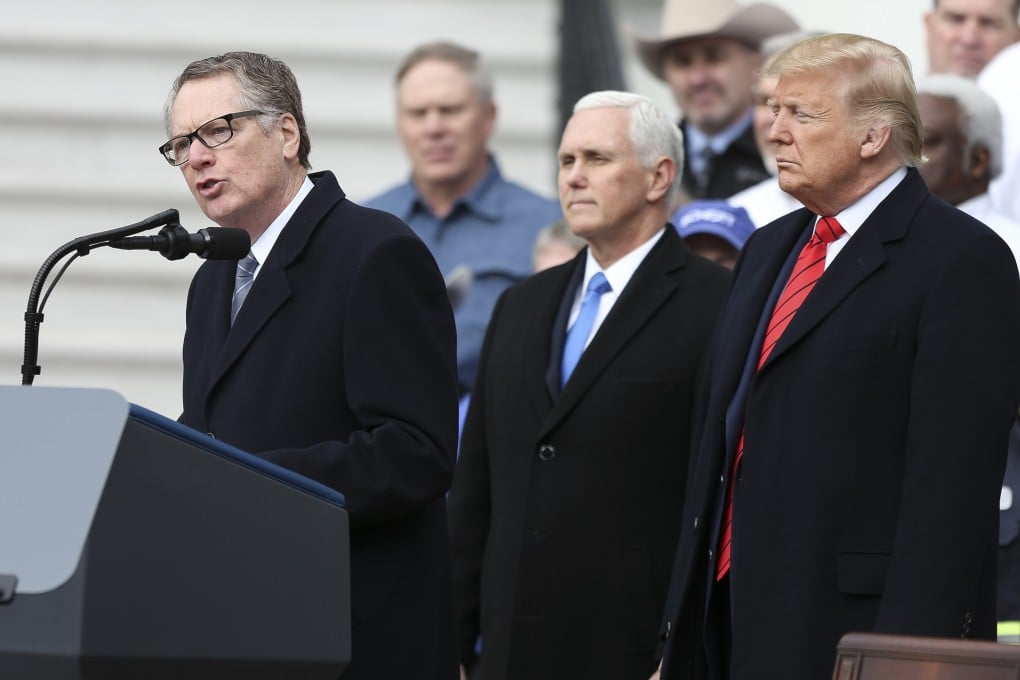Opinion | US outrage over national security law for Hong Kong puts Donald Trump and China trade talks in an awkward spot
- New national security law could create economic and political risks for US multinational firms with operations in Hong Kong
- Trump faces a tough choice between securing a trade deal with China and heeding lawmakers’ calls to defend democratic freedoms

“These are difficult times for both our countries. It is important that we each continue to work to make our agreement a success,” the USTR said in a statement, while the US State Department was railing against the National People’s Congress move. A discordant note of optimism drowned in a chorus of opprobrium.
Secretary of State Mike Pompeo must deliver his verdict soon on whether Hong Kong is sufficiently autonomous to retain the different trading status Hong Kong has with the United States, compared with mainland China.

04:52
Tear gas fired as thousands protest Beijing’s planned national security law for Hong Kong
Anyone expecting drastic measures should take the USTR’s statement into account. Trump is often accused of policy inconsistency, and rightly so. But if we’re to find any shred of certainty about what he values in dealing with other countries, we can count on two: a deep respect for autocrats and their ability to buy US goods.
